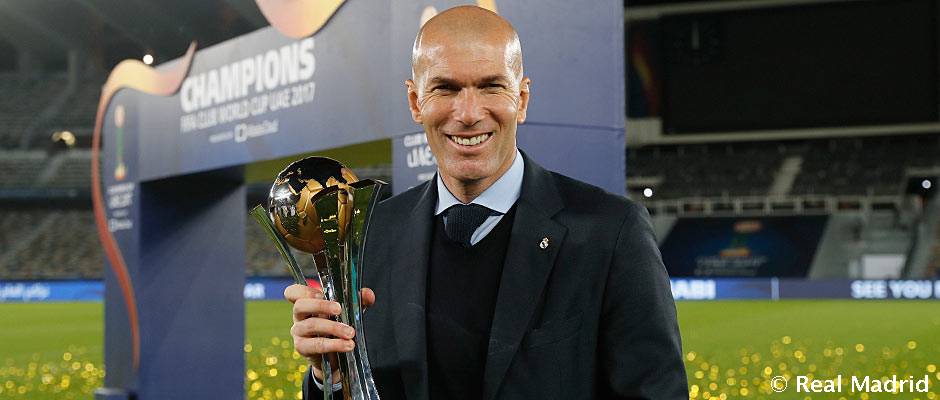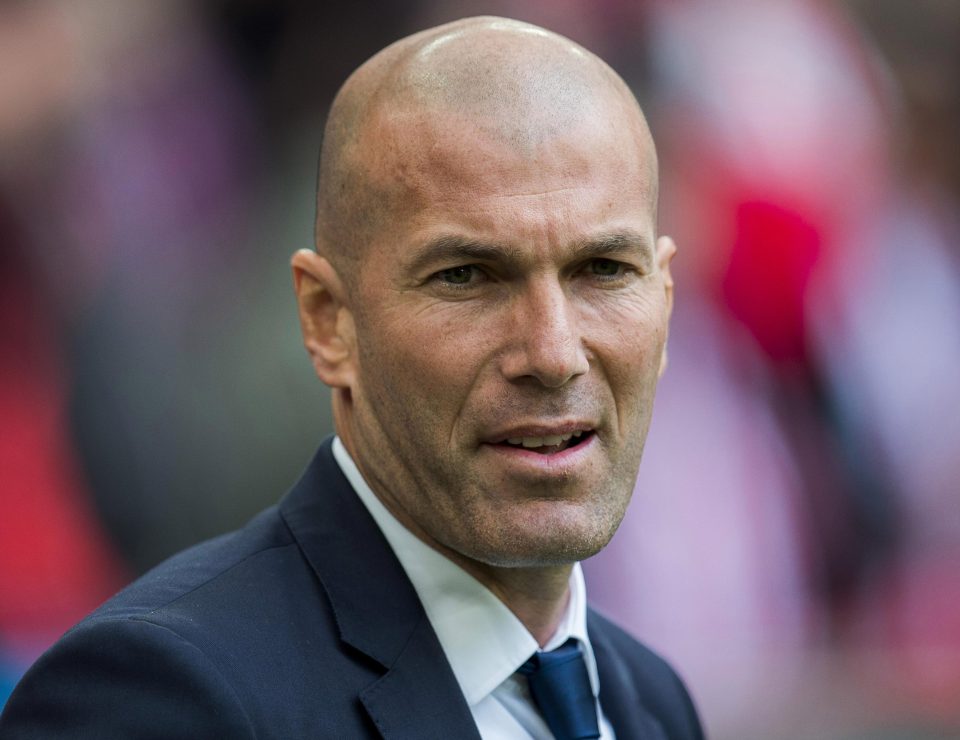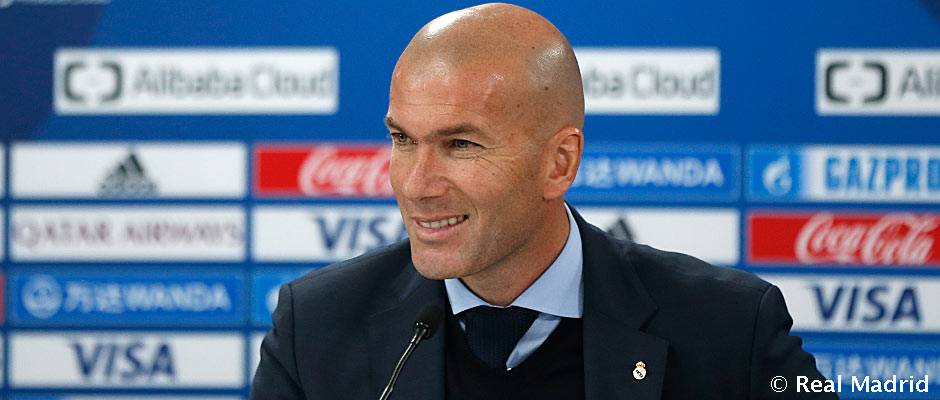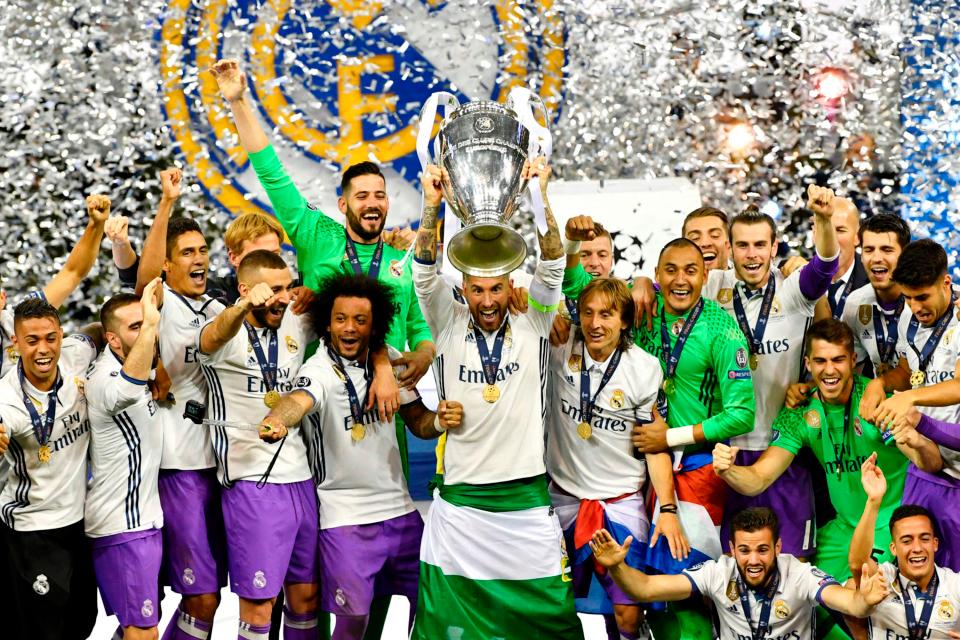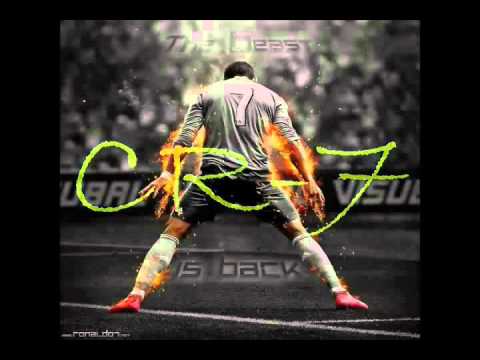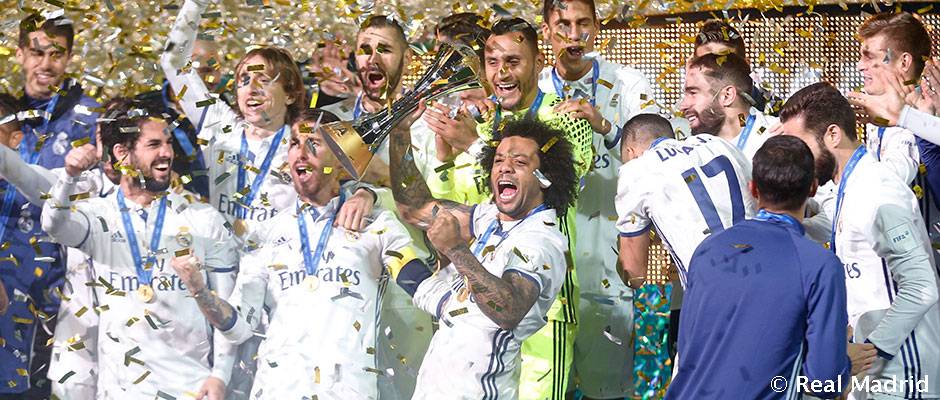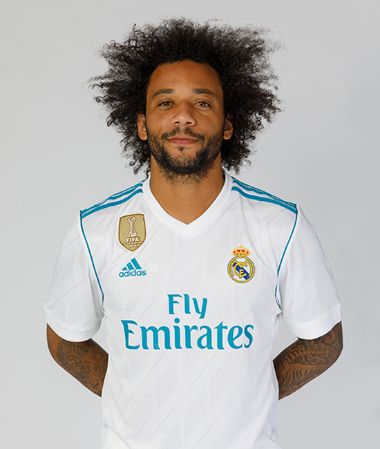
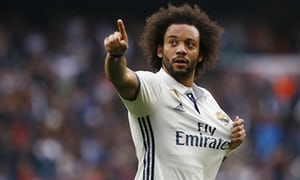
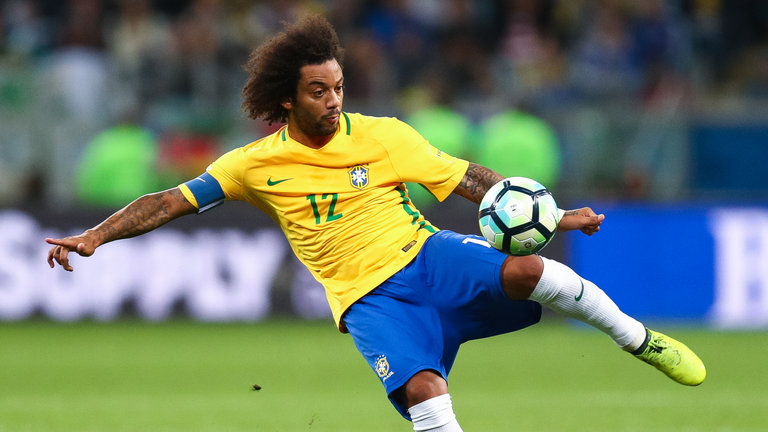
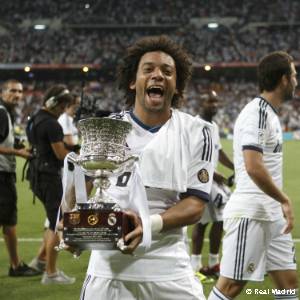 This name uses Portuguese naming customs. The first or maternal family name is Vieira and the second or paternal family name is da Silva.
This name uses Portuguese naming customs. The first or maternal family name is Vieira and the second or paternal family name is da Silva.
Marcelo
Marcelo by Tasnim.jpg
Marcelo in 2017
Personal information
Full name Marcelo Vieira da Silva Júnior[1]
Date of birth 12 May 1988 (age 29)[2]
Place of birth Rio de Janeiro, Brazil
Height 1.74 m (5 ft 9 in)[3]
Playing position Left back
Club information
Current team
Real Madrid
Number 12
Youth career
2002–2005 Fluminense
Senior career*
Years Team Apps (Gls)
2005–2006 Fluminense 30 (6)
2007– Real Madrid 305 (22)
National team‡
2005 Brazil U17 3 (1)
2007 Brazil U20 4 (0)
2008–2012 Brazil U23 12 (1)
2006– Brazil 49 (6)
Honours[show]
* Senior club appearances and goals counted for the domestic league only and correct as of 13:53, 23 December 2017 (UTC).
‡ National team caps and goals correct as of 10 November 2017
Marcelo Vieira da Silva Júnior (born 12 May 1988), known as Marcelo, is a Brazilian professional footballer for Spanish club Real Madrid and the Brazil national team. He plays mainly at left back but can also operate as a left winger.[4]
In 2005, he won a Campeonato Carioca with Fluminense and in 2006 he was named to the Brasileirão Team of the Season, at age 18. By the end of the year, he joined Real Madrid for a $8 million fee.[5] As of 2017, he has played 11 seasons at Madrid, scoring 28 goals in 408 matches. There he won three UEFA Champions Leagues, being elected to the Squad of the Season two times, as well as four La Liga titles.
Marcelo debuted for Brazil in 2006 against Wales, scoring a goal. He was part of Brazil’s squad in the 2014 FIFA World Cup, where he reached the semi-finals and was named to the tournament’s Dream Team. He was named to the FIFPro World XI four times, the UEFA Team of the Year in 2011, and La Liga’s Team of the Season in 2016.
After his breakthrough season, Marcelo was praised by football legends such as Paolo Maldini[6] and Diego Maradona,[7] who also called him the best in his position. He is frequently compared to Roberto Carlos, who himself said Marcelo was his heir, the world’s best left back and that “Marcelo possesses a better technical ability than me”.[8]
Contents [hide]
1 Club career
1.1 Fluminense
1.2 Real Madrid
1.2.1 2009–10 season
1.2.2 Breakthrough season: 2010–11
1.2.3 2011–12 season
1.2.4 2012–13 season
1.2.5 2013–14 season
1.2.6 2015–16 season
1.2.7 2016–17 season
1.2.8 2017–18 season
2 International career
3 Outside football
3.1 Personal life
3.2 Sponsorship
4 Career statistics
4.1 Club
4.2 International goals
5 Honours
5.1 Club
5.2 International
5.3 Individual
6 References
7 External links
Club career[edit]
Fluminense[edit]
Marcelo started playing futsal at the age of nine and by the age of 13, he was on the books of Fluminense in Rio de Janeiro. He comes from a very poor background and even considered quitting football, but his club considered him as one of their “crown jewels” and ensured that he continued playing.
Real Madrid[edit]
Marcelo joined Real Madrid during the January transfer window in 2007. On his arrival, club President Ramón Calderón said, “He is an important signing for us. He is a young player who will inject some freshness into the side and is part of our plan to bring younger players into the squad. We’re very happy because he’s a pearl that half of Europe wanted.”[9] Many spectators hailed him as Roberto Carlos’ potential successor in the left-back role.
Marcelo made his debut as a substitute in the 2–0 defeat against Deportivo La Coruña on 7 January 2007.[10] On 14 April 2007, then coach Fabio Capello gave Marcelo his first start for Real Madrid against Racing de Santander. Real Madrid controversially lost the game 2–1.[11] In the 2007–08 season, Marcelo started nearly all of Madrid’s league games under the new manager Bernd Schuster. His ability, speed running across the field, attack, and defence had enabled him to become a very important player for Real Madrid.
After a string of poor performances in 2009, Marcelo found himself on the bench for much of the remaining season while under new manager Juande Ramos, mainly as deputy to the more defensive-minded Gabriel Heinze. Ramos deployed Marcelo as a winger on more than one occasion, and the Brazilian adapted well to his new role. He scored his first goal after receiving a heel flick from striker Gonzalo Higuaín and slotting the ball past the goalkeeper in Madrid’s 4–0 thumping of Sporting de Gijón. After the game, coach Ramos declared that Marcelo’s future would be positioned as a winger, but will push back to defense when required. Marcelo scored his second goal for Real Madrid in a victory over Almería, a powerful strike from outside the box with his weaker right foot.
On 18 April 2009, he scored his third goal of his Real Madrid career, when he scored the only goal of the game against Recreativo de Huelva away from home.[12] He scored his fourth goal against Sevilla at the Estadio Ramón Sánchez Pizjuán in April 2009.
2009–10 season[edit]
Under the next head coach Manuel Pellegrini, Marcelo consistently featured in the starting XI for his versatility and pace along the left flank in offensive and defensive roles. He continued to be employed as a left-winger under Pellegrini, and reached the top of the assist charts of La Liga in the 2009–10 season. He admitted in a press conference at the end of 2009, “I now feel better playing as a winger.”[13] His successful performance in Real Madrid’s 2009–10 campaign earned him a contract extension on 5 February 2010 with the club until June 2015.[14] This season proved to be his breakthrough season at the club.
Breakthrough season: 2010–11[edit]
Marcelo training with Real Madrid in 2011
In the 2010–11 season under new coach José Mourinho, Marcelo was back in his natural position of left back. He started all league games, paying back the coach’s confidence in him with defensive steel and attacking intent and gained the coach’s admiration. On 25 November 2010, Marcelo was named as a part of the 55 player shortlist for the FIFA World XI. He scored his first goal of the new season in a 1–0 win against RCD Espanyol on 13 February.[15] He had a terrific match against Olympique Lyonnais in the Champions League. Showing his attacking flair and defensive skills, he opened the scoring with his first-ever Champions League goal and assisted Karim Benzema’s goal, at the end he was named man of the match, of which Real went on to win 3–0, and progressed to the quarter-finals for the first time since 2004.[16] Marcelo then continued his fine season by scoring in the second leg against FC Barcelona in the Camp Nou. The game ended 1–1. Marcelo’s successful campaign in the Champions League earned him a starting spot in UEFA’s starting XI. Marcelo was heavily praised by the worldwide media during that season, and many called him the best left back in the world. Diego Maradona said he was the third best player in La Liga, after Cristiano Ronaldo and Lionel Messi.[7]
2011–12 season[edit]
Marcelo in 2012
Marcelo was sent off on 17 August 2011 at Madrid’s 3–2 loss to FC Barcelona. On 3 December 2011, Marcelo scored Madrid’s third goal in a 3–0 victory over Sporting de Gijón in La Liga.
Paolo Maldini gave credits to Marcelo and called him the current left back, “who is a great attacker and a defender, a specialist of both areas.”[6]
Roberto Carlos named Marcelo as the world’s best left back, saying. “He had more ability than me with the ball and he joins in better,” and even called him his heir.[8] Marcelo had shown great performances as a left back, such as in the Champions League quarter-finals against Cypriot club APOEL, while entering as a substitute in the 75th minute for Fábio Coentrão. Marcelo was part of the starting XI as Real Madrid claimed their 32nd league title.
Marcelo was also involved with the Brazilian Olympic football team at the 2012 Summer Olympics in London.
2012–13 season[edit]
Marcelo scored his first goal of the season against Manchester City in the Champions League Group stage on 19 September, Real’s first goal of a 3–2 win at the Santiago Bernabéu.[17]
As of February 2013, Marcelo had returned from injury and captained Real Madrid on 23 February at the Estadio Riazor which ended in a 2–1 victory for Los Merengues. On 20 April, Marcelo played as the captain again against Real Betis at the Santiago Bernabéu. In the 14th minute, he sustained a muscle injury after intercepting a long through-ball, but the game ended in 3–1 victory for the home side nevertheless.
2013–14 season[edit]
Marcelo scored the opening goal for Real Madrid against Chelsea in the Guinness International Champions Cup 2013 final on 7 August, Real Madrid won 3–1.[18] During the league season, he played 28 matches, and scored one goal, in a 3–0 win over Levante UD on 9 March.[19]
Marcelo scored Real Madrid’s third goal of their 4–1 win in the 2014 UEFA Champions League Final against city rivals Atlético Madrid, with an extra-time strike from outside the box after coming on as a substitute for Fábio Coentrão.[20]
2015–16 season[edit]
On 10 July 2015, Marcelo signed a new contract with Real Madrid, keeping him at the club until 2020. On 18 October 2015, he scored his first goal of the season by scoring Real Madrid’s first goal in a 3–0 home win against Levante UD.[21][22]
He was a regular starter when the team won the 2015–16 UEFA Champions League.[23]
2016–17 season[edit]
He played 30 matches when Madrid won the 2016–17 La Liga[24][25] and was a regular starter when Madrid won the 2016–17 UEFA Champions League.[26]
2017–18 season[edit]
On 13 September 2017, Marcelo signed a new contract which keeps him at the club until summer 2022.[27]
International career[edit]
Argentina’s Lionel Messi evades Marcelo in the semi-final of the 2008 Summer Olympics.
Marcelo scored on his Brazil debut against Wales at Tottenham Hotspur’s White Hart Lane (the score finished 2–0). He picked up the ball just outside the Wales box and shot for a traditional Brazilian full-back goal. Marcelo has been compared to former Real Madrid and Brazilian national team left-back Roberto Carlos They are both Brazilian left backs who played for Real Madrid. Both of them are left backs who can push up and score goals.[citation needed] The two had played together during the second half of the 2006–07 season before Carlos’ move to Turkish team Fenerbahçe.
Marcelo battles Croatia’s Ivan Perišić for the ball during the opening match of the tournament at the 2014 FIFA World Cup.
He was called up for the 2008 Olympic squad, where he won a bronze medal.
In May 2010, he was named as one of the seven players serving as backup for Brazil’s 2010 FIFA World Cup squad.[28] Despite not being called up by then Brazil coach Dunga, he was selected again by new boss Mano Menezes for a friendly against the United States on 10 August 2010. He was the Man of the Match for a friendly 2–1 win against Mexico away on 11 October 2011, scoring the winner by dribbling past several players and then blasting the goal into the net.
He was part of Brazil’s 2012 Olympic team, as one of the three over-age players, where Brazil won a silver medal.[29]
Marcelo was selected as a member of Brazil to play in the 2013 Confederations Cup. He was part of the Brazil’s starting lineup for all five matches, including the 3–0 victory over Spain in the final.
In the 2014 FIFA World Cup, Marcelo scored an own goal in the 11th minute of the opening game against Croatia on 12 June, deflecting a shot by Nikica Jelavić for the first goal of the competition.[30] It was the first own goal that Brazil had scored at the World Cup,[31] although they eventually won the match 3–1.







 This name uses Portuguese naming customs. The first or maternal family name is Vieira and the second or paternal family name is da Silva.
This name uses Portuguese naming customs. The first or maternal family name is Vieira and the second or paternal family name is da Silva.